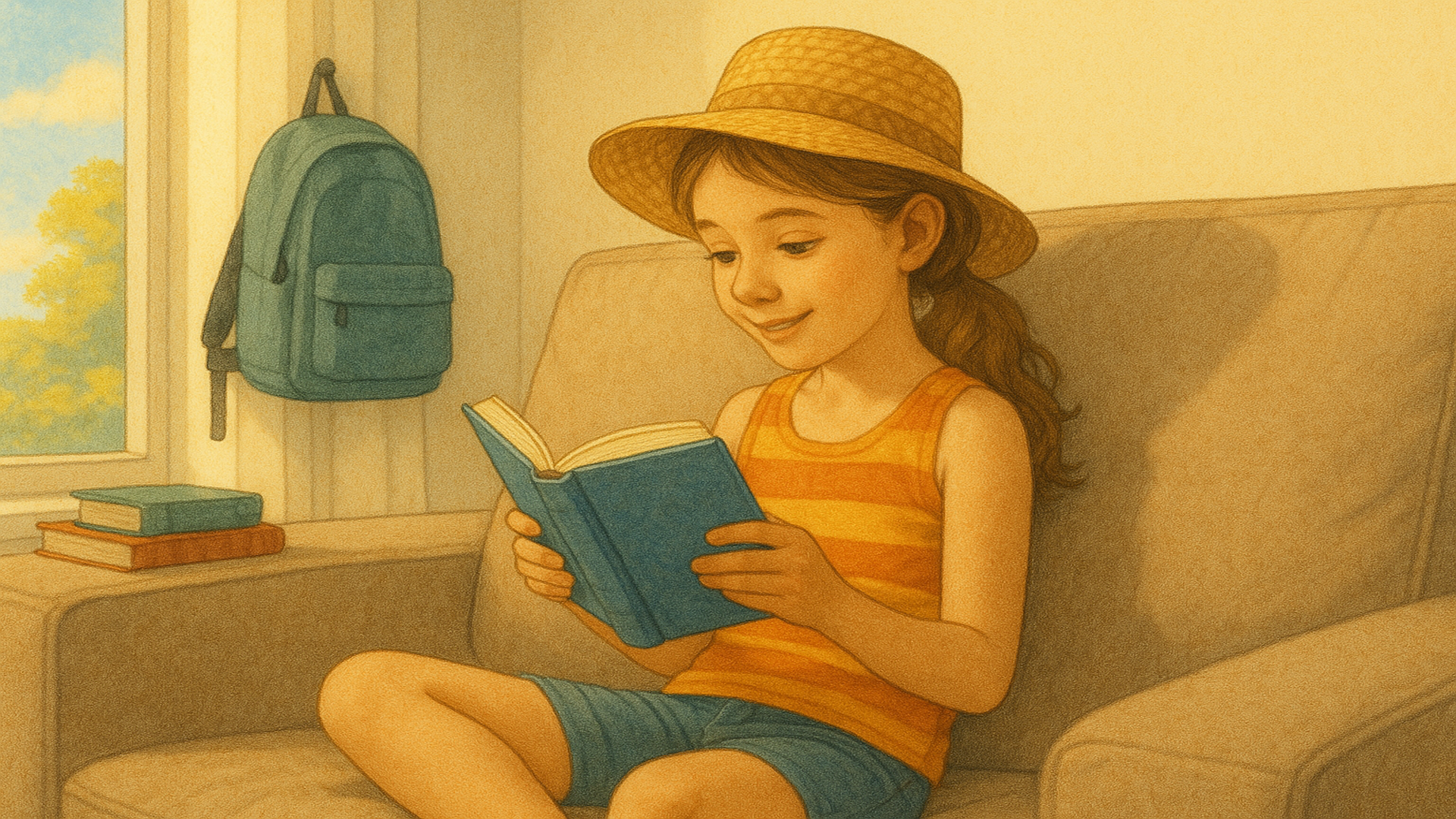Remember when summer felt endless?
No schedule. No alarm clocks. Just a hazy stretch of time filled with bike rides, cartoons, backyard boredom, and video games that overheated your console.
But in between the screen time and sunburns, something else happened. We read.
Not for a grade. Not for an assignment. Just because it felt good to get lost in something.
Here’s why that mattered — and why it still does.
1. Reading by Choice Boosts Motivation and Lifelong Enjoyment
You’d walk into a library without a list. Pick something with a dragon, a detective, or a dog that talked — no rules, just instinct. And you'd read wherever felt right: sprawled on the floor, under a blanket, or up in a tree.
This freedom to explore nurtured autonomy and built positive associations with reading — something today’s research connects to long-term motivation and reading success¹.
2. Fiction Builds Empathy and Emotional Intelligence
Those quiet moments with a book helped us feel less alone.
We laughed at silly characters, worried when someone got lost, and rooted for heroes who reminded us of ourselves. That kind of emotional engagement isn't just warm and fuzzy — it’s foundational.
Reading fiction improves empathy and perspective-taking, even in early readers, by activating the same parts of the brain used for social connection and understanding others².
3. Deep Reading Strengthens Focus and Imagination
Sometimes a whole afternoon disappeared because a book had pulled you in that far.
Psychologists call this “narrative transportation” — when a reader becomes mentally immersed in a story³. It fosters imagination and concentration, both of which are increasingly under strain in our fast-paced, distraction-heavy world.
In fact, deep reading helps build neural pathways related to memory, emotional regulation, and focus⁴.
4. Autonomy in Reading Encourages Continued Engagement
No one told you what to read. You chose it. And that choice made all the difference.
Studies consistently show that when children select their own books, they read more — and with more joy. Autonomy in reading is directly tied to increased reading comprehension, vocabulary growth, and a love of learning⁵.
5. Pleasure Reading Predicts Academic and Social Gains
It’s easy to think reading is in decline because of screens. But the truth is, it’s the freedom to enjoy reading that’s harder to come by now.
Pressure, performance, and packed schedules have replaced the quiet corners where we once lost ourselves in books. Yet the research still points to the same truth: the more children read for pleasure, the more they grow — emotionally, cognitively, and socially⁶.
📚 References
1. OECD. (2010). PISA 2009 results: Learning to learn – Student engagement, strategies and practices (Vol. III). https://www.oecd.org/pisa/pisaproducts/48852630.pdf
2. Mar, R. A., Oatley, K., & Peterson, J. B. (2009). Exploring the link between reading fiction and empathy: Ruling out individual differences and examining outcomes. Communications, 34(4), 407–428. https://doi.org/10.1515/COMM.2009.025
3. Green, M. C., & Brock, T. C. (2000). The role of transportation in the persuasiveness of public narratives. Journal of Personality and Social Psychology, 79(5), 701–721. https://doi.org/10.1037/0022-3514.79.5.701
4. Wolf, M. (2008). Proust and the squid: The story and science of the reading brain. Harper Perennial.
5. Gambrell, L. B. (2011). Seven rules of engagement: What’s most important to know about motivation to read. The Reading Teacher, 65(3), 172–178. https://doi.org/10.1002/TRTR.01024
6. Sullivan, A., & Brown, M. (2015). Reading for pleasure and progress in vocabulary and mathematics. British Educational Research Journal, 41(6), 971–991. https://doi.org/10.1002/berj.3180

 All Posts
All Posts
